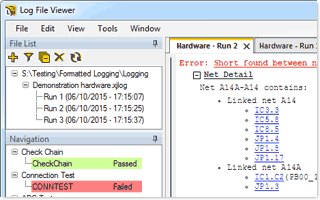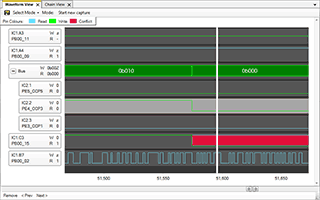Welcome to the XJTAG support blog
This is your go-to space for tips, insights, and updates straight from the XJTAG development and support team. We’re here to help you get the most out of your XJTAG system by sharing our knowledge, experience, and best practices. You’ll find posts highlighting particular features of the different software packages that make up the XJTAG development system or aspects of the XJEase language.
Have a topic you’d like us to cover or a question you want answered? Let us know!
For product updates check out the Updates Hub.
Debugging Connection Test – part 1 (Updated)
This post is an update to the original “Debugging Connection Test (part 1)” post – over time several features in XJTAG have changed considerably and may be hard to find by following my original post. […]
Why categorise resistors, inductors, links and fuses?
Recently one of our newer customers started on their first solo board setup. They had previously seen XJTAG demonstrated and had also had their initial board setup done by an XJTAG engineer. When they came to setting a board up for themselves they tried to follow the path that the XJTAG engineer had talked them through – […]
Errors and Warnings pane improvements
In version 3.4 of XJTAG we have aimed to improve the usefulness of the Errors and Warnings panes by adding a number of new ways to interact with errors and warnings. When you have errors or warnings in your project, it sometimes isn’t immediately obvious what the cause is or where they can be fixed. […]
Better suggestions for power and ground net categorisation
We’ve made some improvements to the Power/Ground nets screen to make it easier to identify power and ground nets. We recommend that the first thing you do after adding your board is to classify the power and ground nets on the boards. This will improve our ability to correctly suggest categorisations for your devices, in particular telling the difference between [...]
Formatted Log Files
It is now possible to produce log files which save the test output to be displayed at a later time in the same way as it is displayed on the Run Tests screen. When these formatted log files are viewed, they contain the tables, expandable sections and hyperlinks as are displayed in the test output on the Run Tests screen. […]
Waveform View
One of the exciting new features in version 3.4 of XJTAG is a Waveform View that can display the JTAG chain data from XJAnalyser. The Waveform View can display the waveform traces from pins or buses in XJAnalyser in real time, providing useful debug information for your boards. […]


